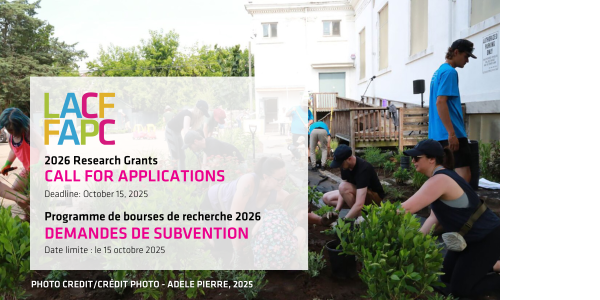
Submit your project for a 2026 LACF Research Grant
Design, Speculate, Postulate, Question, Research, Theorize, Explore
The LACF Research Grants are open to submissions exploring new design theories, speculations about new landscape interventions, questioning the current norms of practice, and arguing for new areas of research and professional development, as well as submissions seeking to expand the traditional areas of landscape research.
NEW! This year, you can apply for a higher amount of funding - up to $12,500 (for professionals) and $5,000 (for students).
Deadline: October 15, 2025
Summary of the Decisions of the LACF Board at its September 2025 Meeting
- The planning of a board retreat focusing on fundraising was approved for December 2025.
- A revised Research Grants and Targeted Grants Policy was approved.
- A revised Northern Research Grants Policy and Procedure was approved.
- Draft bylaws for the ratification of the members at the 2026 Annual Members' Meeting were approved.
- A Committee Board Report Template and instruction to all committee chairs to submit it to the Board on a quarterly basis, as requested by the Executive Director, was approved.
- The 2026 Management Contract with CSLA was approved.
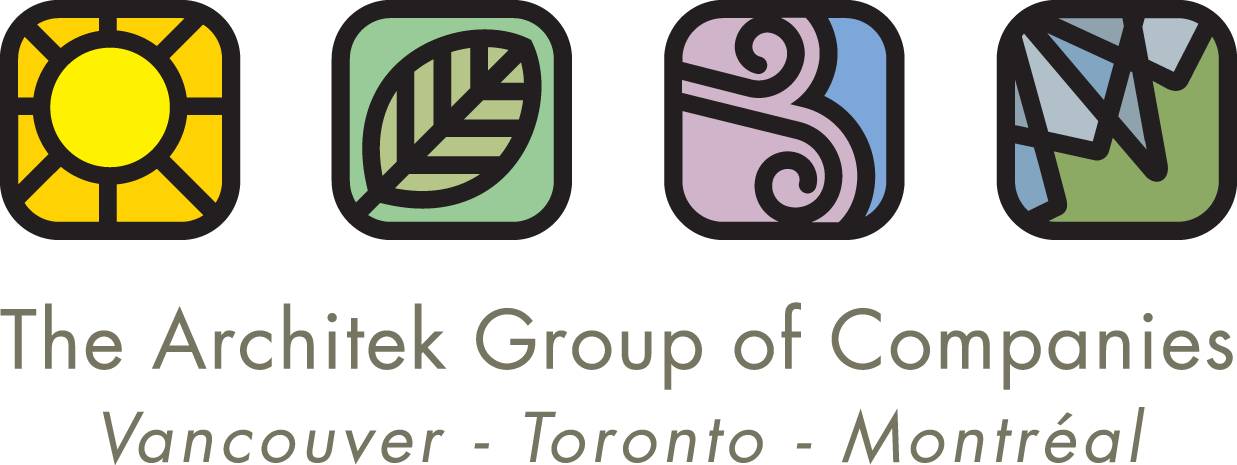 LACF Announces the Architek Sustainable Urban Development Grant
LACF Announces the Architek Sustainable Urban Development Grant
Architek Group of Companies has partnered with LACF to launch the Sustainable Urban Development Grant to be offered as a Research Grant over the course of the next five years (2025-2029).
“For over two decades, we’ve worked to make biophilic design a necessity, not a luxury. This grant will uncover bold, research-driven solutions—showing how green roofs, water management, and living architecture can shape resilient, human-focused cities. We’re proud to support LACF in expanding the evidence and advancing this vision across Canada.” - Letitia Silk, National Director of Business Development and Growth, Architek Group of Companies
Applications are open for grants of up to $12,500. The deadline is October 15, 2025.
.png) Lea Papillon is the recipient of the 2025 Frederick Gage Todd National Scholarship
Lea Papillon is the recipient of the 2025 Frederick Gage Todd National Scholarship
The 2025 Frederick Gage Todd National Scholarship jury praised Lea Papillon's strong application of the Canadian Landscape Charter and her evident passion for the profession. She demonstrated excellent communication and technical skills, along with an impressive research background and solid design talents, as shown in her diverse portfolio. The jury also particularly appreciated Lea Papillon's community work, her efforts with the visually impaired, and her dedication to social justice and equity in her projects.
.png) Jack Tupper is the Recipient of the 2025 Robert N. Allsopp Urban Design Fellowship
Jack Tupper is the Recipient of the 2025 Robert N. Allsopp Urban Design Fellowship
Jack Tupper is an English landscape architect and photographer based in the lands now known as Vancouver, who’s work focuses on the ecological remediation of landscapes within urban and peri-urban contexts. He is a Senior Landscape Architect with the Vancouver Park Board and an Adjunct Lecturer in Ecological Planting Design at the University of BC. In addition, he operates his own design studio, undertaking research projects, residential work, and developer-led initiatives across British Columbia.
LACF-Funded Research Reports
Reimagining Punjab’s Agricultural Landscape | Simranpreet Kaur
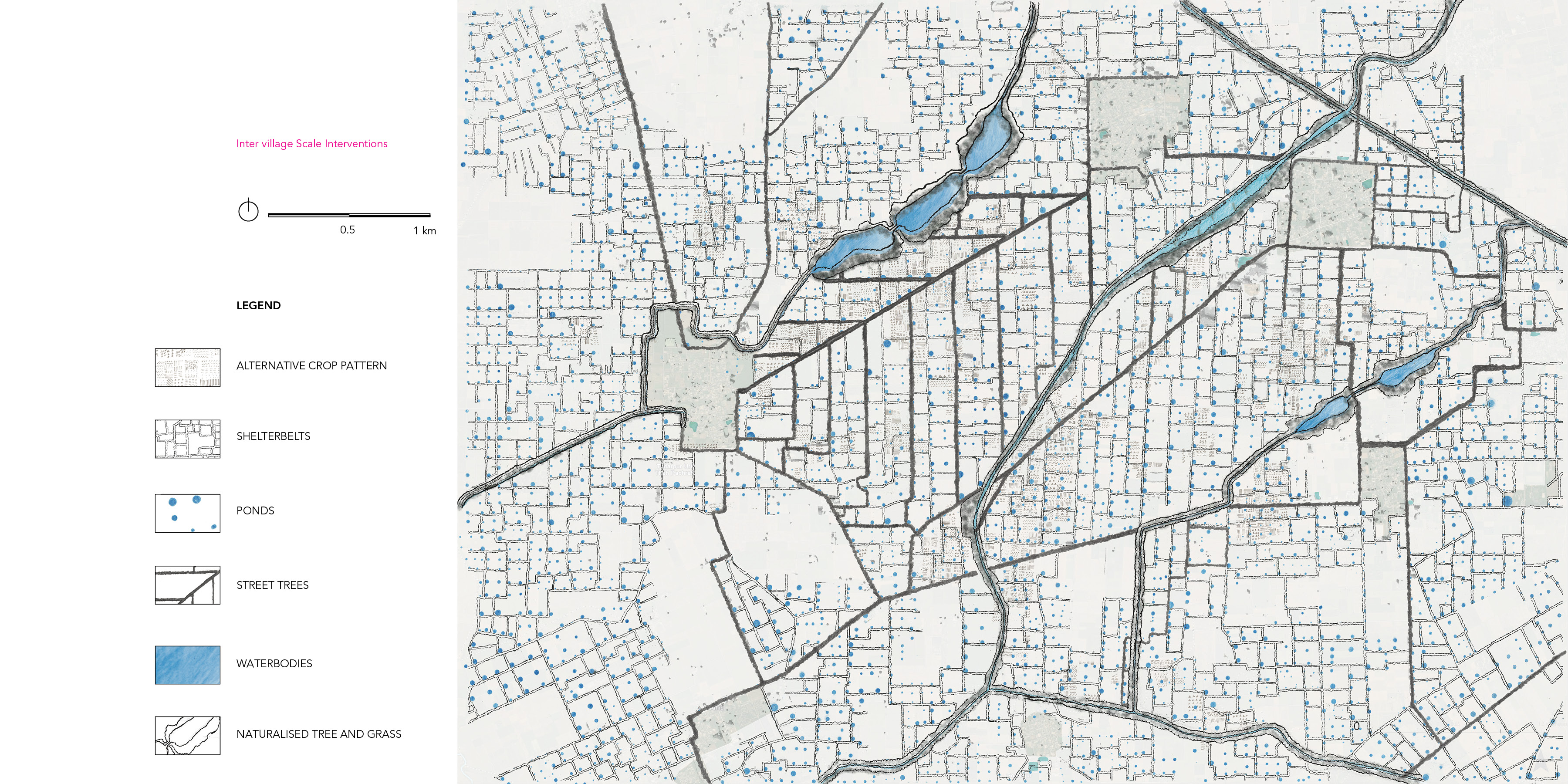 Punjab’s agricultural landscape is increasingly challenged by groundwater depletion. This practicum attempts to create water systems in the village of Nadalon that has the capacity to conserve enough water to sustain farming during the dry season without depending on groundwater. Such systems are anticipated to reduce reliance on groundwater while maintaining crop yields. In addition, the practicum emphasized the creation of cultural spaces that supported agriculture while restoring a traditional sense of community.
Punjab’s agricultural landscape is increasingly challenged by groundwater depletion. This practicum attempts to create water systems in the village of Nadalon that has the capacity to conserve enough water to sustain farming during the dry season without depending on groundwater. Such systems are anticipated to reduce reliance on groundwater while maintaining crop yields. In addition, the practicum emphasized the creation of cultural spaces that supported agriculture while restoring a traditional sense of community.
Ravine Reconnect: Restoring Landscape Connectivity in a Growing Metropolis | Sonja Vangjeli
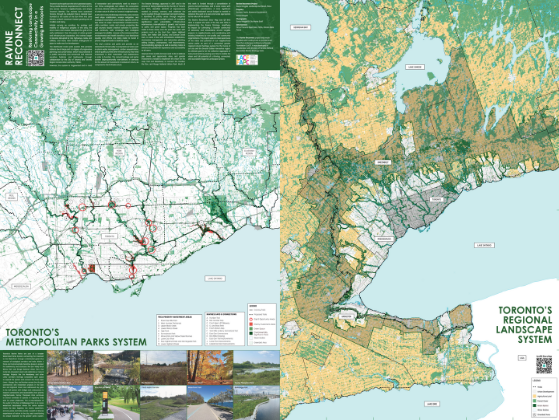 The Ravine Reconnect project seeks to cultivate a broader community of advocacy and support for prioritizing and investing in Toronto’s ravine parks as the city’s most valuable natural infrastructure assets. With an online ArcGIS Story Map and physical Poster Map as advocacy tools, it creates a collective understanding of the ravines as part of a greater connected Metropolitan Parks System that is essential to sustaining the growing urban region. Through photography, storytelling, mapping, and research, it strives to build landscape literacy, to raise awareness and support for ongoing Ravine Strategy implementation work by the City of Toronto and TRCA, and to motivate, connect, and grow the network of community advocates and stewardship organizations, amplifying the impact of collective efforts. The project also engages students in a Multidisciplinary Urban Capstone Project at the University of Toronto School of Cities, to help build future capacity for ongoing advocacy and creative thinking to restore landscape connectivity across the growing city region.
The Ravine Reconnect project seeks to cultivate a broader community of advocacy and support for prioritizing and investing in Toronto’s ravine parks as the city’s most valuable natural infrastructure assets. With an online ArcGIS Story Map and physical Poster Map as advocacy tools, it creates a collective understanding of the ravines as part of a greater connected Metropolitan Parks System that is essential to sustaining the growing urban region. Through photography, storytelling, mapping, and research, it strives to build landscape literacy, to raise awareness and support for ongoing Ravine Strategy implementation work by the City of Toronto and TRCA, and to motivate, connect, and grow the network of community advocates and stewardship organizations, amplifying the impact of collective efforts. The project also engages students in a Multidisciplinary Urban Capstone Project at the University of Toronto School of Cities, to help build future capacity for ongoing advocacy and creative thinking to restore landscape connectivity across the growing city region.
Green Equity: Designing Equitable Heat-Resilient Public Spaces for Delhi | Kanika Mehta
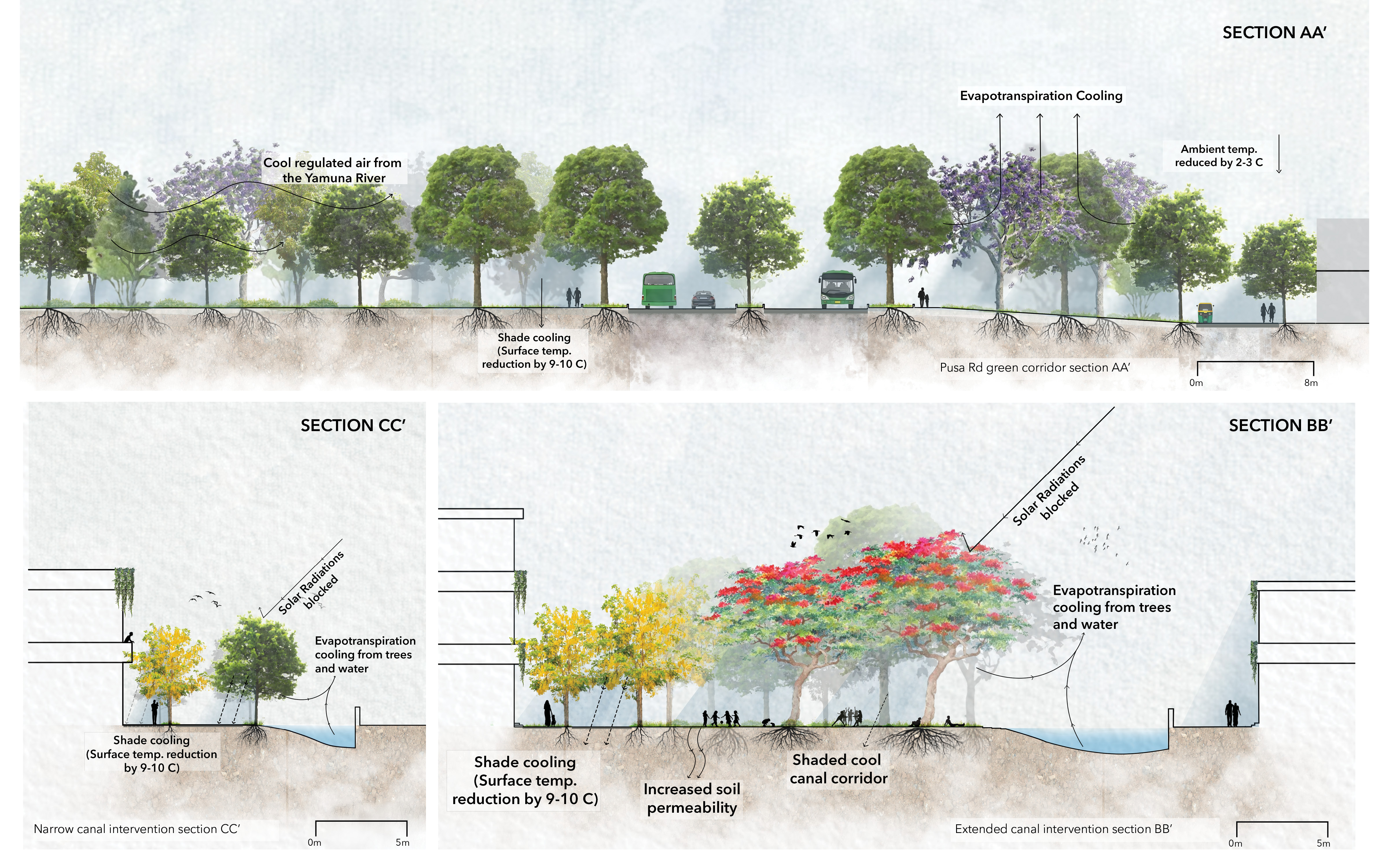 This research examines Delhi’s extreme urban heat from a city-wide scale down to highly dense, low-income neighborhoods. Using site surveys, GIS analysis, historical research, and spatial mapping, the study proposes design strategies such as cooling corridors, neighborhood parks, and cultural nodes to restore ecological functions while ensuring equitable access to public spaces. In conclusion, this research provides a scalable, equity-focused framework for designing heat-resilient public spaces, illustrating how climate adaptation strategies can be effectively implemented in rapidly urbanizing areas facing significant environmental and social challenges.
This research examines Delhi’s extreme urban heat from a city-wide scale down to highly dense, low-income neighborhoods. Using site surveys, GIS analysis, historical research, and spatial mapping, the study proposes design strategies such as cooling corridors, neighborhood parks, and cultural nodes to restore ecological functions while ensuring equitable access to public spaces. In conclusion, this research provides a scalable, equity-focused framework for designing heat-resilient public spaces, illustrating how climate adaptation strategies can be effectively implemented in rapidly urbanizing areas facing significant environmental and social challenges.
